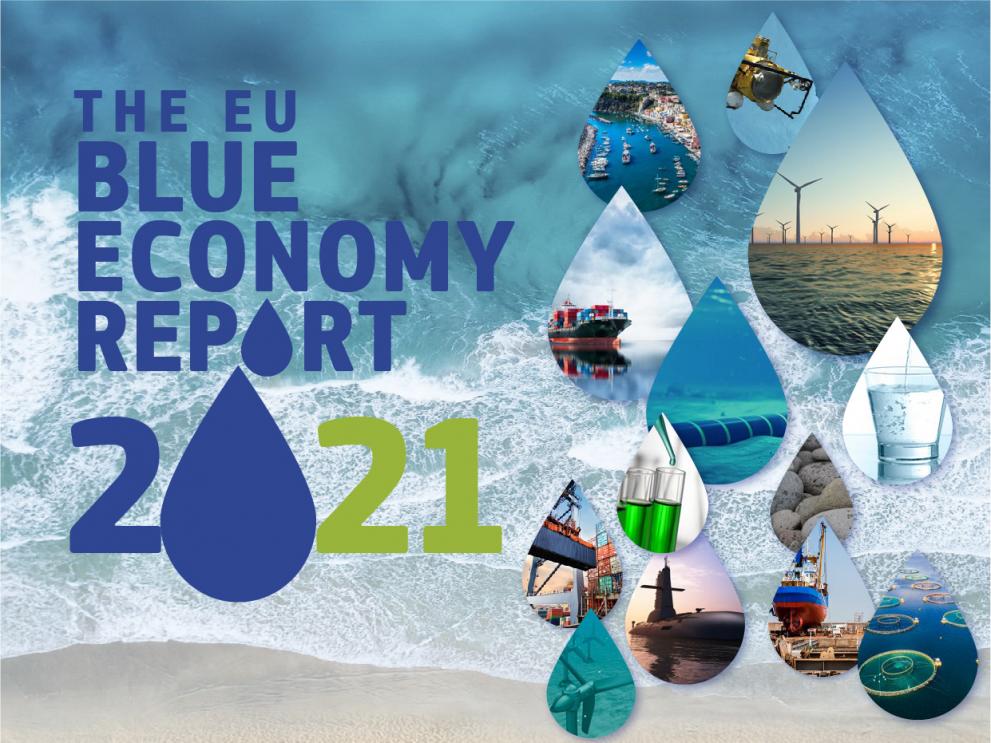
The sector directly employed close to 4.5 million people in 2018 and generated around €650 billion in turnover and €176 billion in gross value added. Emerging activities such as ocean energy, marine biotechnology and robotics are developing quickly and will play an important role in the EU’s transition towards a carbon-neutral, circular and biodiverse economy.
Commissioner for Environment, Oceans and Fisheries Virginijus Sinkevičius said:
This report shows that the blue economy is an important driver of today’s European economy, in coastal communities and beyond. Moreover, with the European Green Deal, its importance will only grow in the future. The sector will contribute to decarbonisation and other European environmental objectives with innovative solutions and by reducing its own footprint. I call on Member States and private investors to support this transformation and invest in a sustainable blue economy.
Commissioner for Innovation, Research, Culture, Education and Youth Mariya Gabriel said
The EU Blue Economy report marks an important milestone towards establishing the European Blue Observatory, a knowledge sharing platform that will enable near real-time monitoring of decarbonisation efforts across Europe’s blue economy sectors.
Main trends 2018
Most of the data available for the blue economy focus on the so-called “established sectors”, seven large sectors ranging from maritime transport and ship building over offshore wind energy to coastal tourism.
The report shows an acceleration in the growth of all established sectors from 2013 to 2018 except for non-living resources (oil, gas and minerals extraction). Gross value added from coastal tourism, the largest blue economy sector in the EU, increased by 20.6% compared to 2009, while maritime transport and port activities increased by 12% and 14.5%, respectively. Also the living resources sector – including fisheries and aquaculture – is in good health and has generated €7.3 billion gross profits in 2018, a 43% rise compared to 2009.
Employment in the blue economy has remained stable (+1%) over the last ten years, although this figure masks a strong shift between sectors. While employment in the non-living resources dropped by 60% compared to 2015, coastal tourism saw a 45% increase over the same period. Offshore wind is confirming its spectacular development of recent years, with 15% more jobs in 2018 compared to just the year before.
Gross investments in tangible goods decreased by 14.2% compared to 2009: from €29.8 billion to €25.5 billion. This decline was mainly driven by decreases in investments in the sectors of maritime transport, non-living resources, and to a lesser extent, port activities. On the other hand, shipbuilding and repair, as well as the living resources sector, reported a positive trend (+8.6% and +12.6%, respectively).
Based on the most recent data and analysis, all the established sectors, with the exception of marine renewable energy, suffered severely from the COVID-19 crisis. The coastal tourism sector is one of the most affected with an estimated decrease in tourism activity of 60 to 80%. Comparing the first halves of 2019 and 2020, new orders in European shipyards decreased by 62%. In June 2020, out of 75 ports, 48% had registered a decline in container vessel calls compared to pre-COVID times.
Emerging activities pave way for European Green Deal
The report also looks into emerging sectors, which are still in full development but hold significant potential for the future. Blue biotechnology and the blue bioeconomy can play a crucial role as suppliers of plant-based alternatives to plastics and other petrochemical applications. The sector is still in its infancy, the most notable subsector being algae production with a total turnover of € 10.7 million in France, Spain and Portugal. In 2022, the European Commission will adopt an algae strategy to foster development of the sector.
Emerging marine renewable energy activities including floating offshore wind, wave and tidal energy and floating solar photovoltaic energy can help the EU meet its goal of carbon-neutrality by 2050. Installed capacities are still small and often not yet commercial, but the EU is taking a leading role in its development. In 2020, 66% of global wave energy capacity was installed in the EU.
This edition of the Blue Economy report also provides an overview of the maritime security and surveillance sectors, which were not included in prior editions. Digitalisation and technological innovation are transforming the maritime sector in nearly every aspect of its operations, from underwater to air equipment, including an increased usage of robots for different purposes, such as surveys, scientific research, oil and gas exploration, border surveillance, infrastructure inspection, and farming. Global market value of the maritime robotics sector is forecasted to double by 2025.
Research expenditure
Research and education are key enablers for the twin green and digital transitions. A preliminary assessment shows that the majority of Horizon 2020 investments in the blue economy focused on ocean observation, blue growth and blue biotechnology. Between 2007 and 2019, public and private R&D expenditure on wave and tidal energy in the EU amounted to €3.84 billion. For the next long-term research programme Horizon Europe (2021-27), at least 35% will be devoted to climate-related actions and supporting the transition of maritime industries to climate neutrality.
All data used for this report are available on the Blue Economy Indicators (BEI) online platform easy and freely accessible for all.
The EU blue economy report 2021
Details
- Publication date
- 20 May 2021
- Author
- Directorate-General for Maritime Affairs and Fisheries
